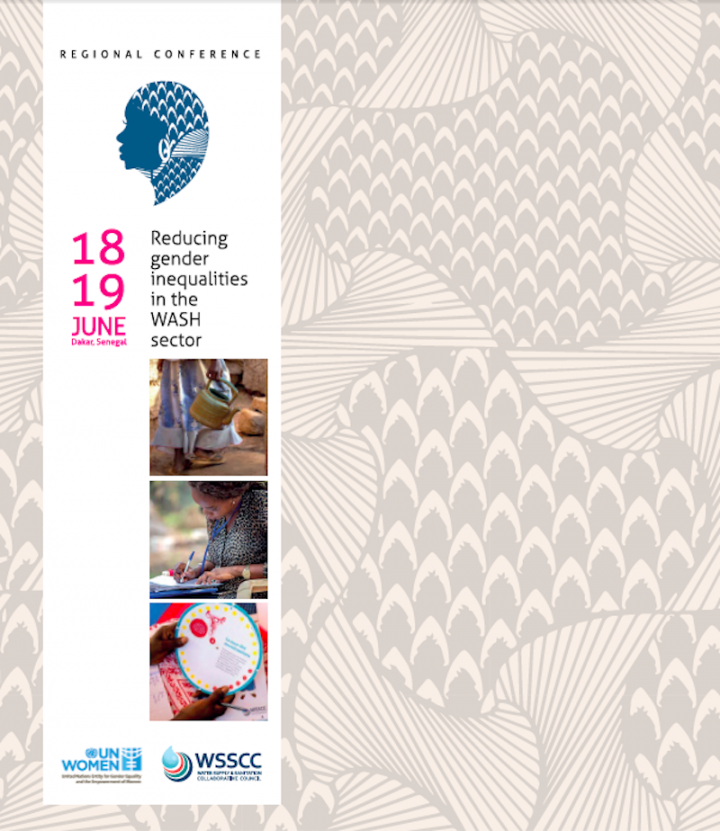
Published in: 2018
Pages: 31
Publisher:
WSSCC
Author:
WSSCC
Uploaded by:
Elke Johanna de Buhr
Partner profile:
Water Access and Sanitation Collaborative Council
1301 Views
16 Downloads
Building on a human right-based approach, the Gender,Hygiene and Sanitation (GHS) Joint Programme, implemented by the Water Supply and Sanitation Collaborative Council (WSSCC) and the United Nations Entity for Gender Equality and the Empowerment of Women (UN Women), intends to support governments in assessing their policies, guidelines and budgets to better reflect women’s and girls’ rights and specific needs for water supply and sanitation.
The GHS Joint Programme was implemented from March 2014 to June 2018 in the Economic Community of West African States (ECOWAS), namely, in Cameroon, Niger and Senegal as phase 1 pilot countries. The programme focus was on Menstrual Hygiene Management (MHM) and women’s and girls’ specific needs as the entry point to critically assess their rights to water and sanitation.
The most significant achievements and outcomes are documented in the programme phase 1 evaluation report and via the 18-19 June 2018 Dakar Regional Conference on Reducing Gender Inequalities in the WASH Sector in West and Central Africa, jointly initiated by WSSCC and UN Women.
The Dakar Regional Conference was an opportunity for participants to carry out a critical and comprehensive review of inequalities in the WASH sector and identify women’s and girls’ priorities for relevant action, while seeking to mobilize resources and engage technical and financial partners in GHS and MHM-related sectors.
The present report highlights the conference’s major outcomes, prospects and recommendations.
Additional information
For further information, please contact: Elke de Buhr (elkejohannad@unops.org)
Bibliographic information
WSSCC (2018). Reducing Gender Inequalities in the WASH Sector. WSSCC
Filter tags
English French Gender equality Gender transformative WASH Menstrual Health and Hygiene (MHH) Sub-Saharan Africa Women's rights & representation and empowerment














